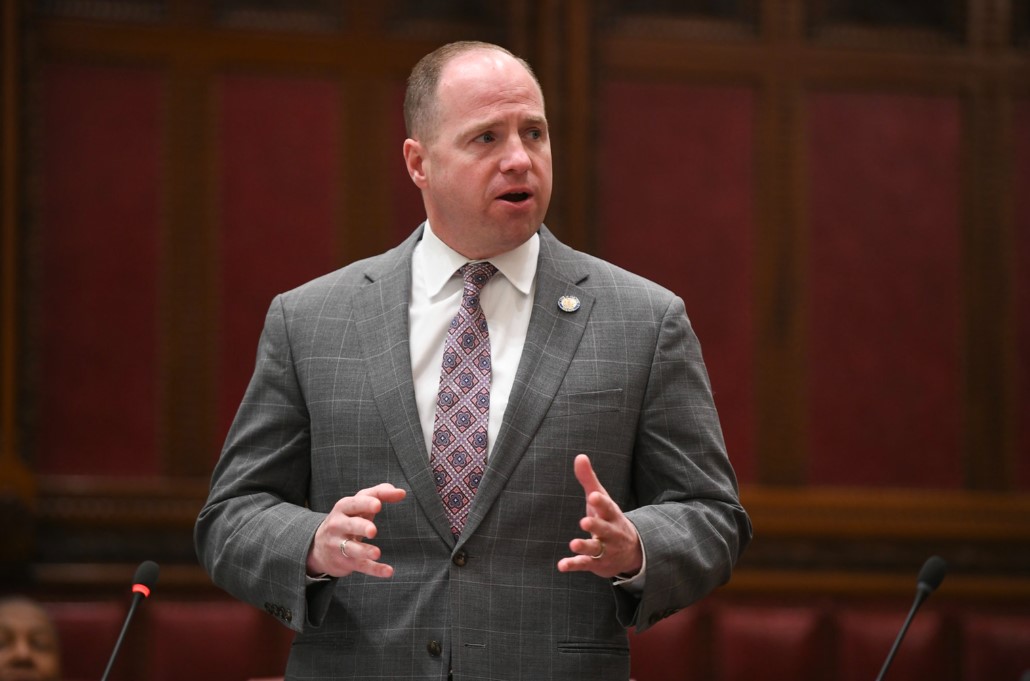Some residents of Broward County, Florida, could see their water bills triple if county commissioners approve two new water treatment plants.
County officials hired a consultant last fall to assess the county's water treatment process and evaluate ways to reduce levels of per- and poly-fluoroalkyl substances, also known as PFAS, in county drinking water, the South Florida Sun Sentinel reported.
PFAS encompass thousands of man-made chemicals found in everyday items like non-stick cookware, fire-fighting foams, grease-resistant food wrappers, water-resistant clothing and other items. PFAS, known as "forever chemicals" because of the long time it takes the chemicals to break down, can cause harm in high exposure amounts.
During the breakdown process, PFAS can leach into the soil and water supply. These chemicals also threaten the water supply when products containing them are dumped onto the ground or into lakes and rivers.
Broward County officials are expecting the consultant's report to be complete in a few months, and they also expect the consultant to recommend constructing two nano-filtration treatment plants, which would pose a high cost to Broward County residents receiving county water services. If the county commissioners approve the new treatment plants, the residents will pay the bill—one that could total $500 million upfront and up to $140 million per year to operate the new water plants.
Although reduced PFAS amounts will be healthier for residents in the long run—potentially even decreasing cancer risk—the new water plants will hit residents' wallets. Broward County Commissioner Steve Geller said the project could "double or triple water rates for users," according to the report.
Broward County's director of water and wastewater services, Mark Darmanin, told Newsweek that the average monthly water bill for a resident utilizing Broward County water services is $30 for 5,000 gallons of water. If the new treatment plants are approved, that rate could jump to $60 to $90 per month for the same amount of water.
Broward County isn't the only county examining its water quality. Last week, the Biden administration finalized stricter limits on "forever chemicals," including PFAS.
The new rules will require utilities to reduce levels of "forever chemicals" to the lowest possible level they can be measured. In 2022, the Environmental Protection Agency (EPA) issued a revised warning that even small amounts of some PFAS chemicals could pose risks to people if consumed.

Broward is one of 27 water providers in the county. It provides water services to 250,000 of the county's 2 million residents. The rate increase will only impact residents receiving county water services. Darmanin told Newsweek that the other municipalities also could need corrections under the new EPA ruling.
Under the new federal rule, water providers will have up to five years to replace water plants if PFAS levels are too high—three years to conduct testing and two years to remedy the situation by installing new treatment plants.
However, Broward County officials don't want to wait until the three-year testing is complete to replace the water treatment plants.
"I don't think it's acceptable to wait five years, the public should have clean water and safe water," Broward County Commissioner Mark Bogen told his colleagues on Tuesday, according to the Sun Sentinel report. "We should make this a priority to get this done within a year or two."
The new water treatment plants will take two years to construct if approved. Since the county commission has yet to approve the plants, it is unclear when residents will begin to see rate increases.
Uncommon Knowledge
Newsweek is committed to challenging conventional wisdom and finding connections in the search for common ground.
Newsweek is committed to challenging conventional wisdom and finding connections in the search for common ground.
About the writer
Anna Skinner is a Newsweek senior reporter based in Indianapolis. Her focus is reporting on the climate, environment and weather ... Read more
To read how Newsweek uses AI as a newsroom tool, Click here.








